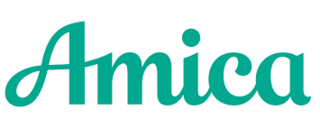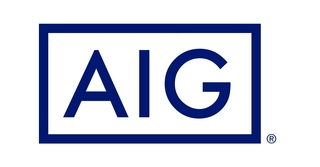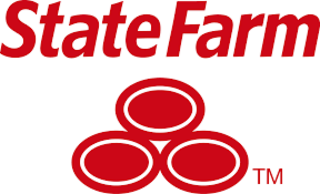5 Best Homeowners Insurance Companies of 2025
Homeowners insurance pays to repair or rebuild your home and replace its contents if they’re damaged by specific perils like fire, theft or weather events such as wind or lightning.
What to know about homeowners insurance
- Most standard homeowners insurance policies cover the structure of your primary residence, personal property, personal liability, and additional living expenses.
- Though your state government doesn't require it, your mortgage lender will require that the property is insured.
- Before buying a policy, assess your home insurance needs. The age of your home, the value of your belongings, and the risk of natural disasters should all be considered.
- Shop around. We focused on companies with a national presence, but regional carriers may offer the best rate and a more personalized service.
How we chose our top picks
Money vetted 15 companies after conducting 1,000+ hours of research based on more than 20 data points. We reviewed the insurers' availability, financial strength and customer satisfaction ratings to determine which were the best providers nationwide.
Read the full methodology to learn more.
Our top picks for the best homeowners insurance
- Amica Mutual – Best Overall
- AIG – Best for High-Value Homes
- USAA – Best Home Insurance Company for Military Members
- Chubb – Best for Diversity of Coverage Benefits
- State Farm – Best for Bundling Policies
- Offers database listing vetted and licensed contractors
- Discounts for claims-free customers
- Ranks highly in JD Power's studies
- Superior financial strength ratings
- Not available in Hawaii
- Premium rates are generally more expensive
- Financial rating:
- A+ (Superior) on A.M. Best
- Discounts:
- Bundling, loyalty, claim-free, autopay, electronic bill, alarm system, detection devices
- Bundling options:
- Auto, renters, life, umbrella
Why we chose Amica Mutual: Amica is our top choice for homeowners insurance because it checks all of the boxes: comprehensive coverage, very positive customer satisfaction ratings and nationwide availability.
Amica, though not the cheapest insurer, has a great customer service track record. Indeed, Amica has top marks in what's arguably the most important factor for customers: the claims process. It earned the top spot in J.D Power's 2025 U.S. Property Claims Satisfaction Study, which surveys homeowners who filed an insurance claim within nine months prior.
Another standout aspect of the company is its Contractor Connection database, which lists thousands of vetted, licensed and insured contractors and guarantees their work with a five-year warranty.
Read our full review of Amica Homeowners Insurance.
- Coverage for homes up to $100 million
- Robust cybersecurity coverage
- Coverage for properties outside the United States
- High rating in J.D. Power's Home Insurance Study
- Customers have to buy more than one policy with the company
- No homeowners insurance coverage in California
- Financial rating:
- A (Excellent) on A.M. Best
- Discounts:
- Undisclosed
- Bundling options:
- Undisclosed
Why we chose AIG: AIG is known as a luxury insurer that provides comprehensive coverage, from dwelling to cybersecurity insurance, for high-value properties worth up to $100 million.
AIG offers guaranteed replacement cost (without any limits, according to the company) for homes valued from $750,000 all the way up to $100 million on an “all-risk” basis — meaning its policy covers all perils except the few specifically excluded.
It also offers the option of ultra-high deductibles (up to $100,000). This could help significantly lower your premium, but you’ll also pay a lot more out of pocket.
In addition to standard coverage, AIG offers services such as: kidnap, ransom and extortion coverage, landscaping coverage, multinational property coverage and business property coverage.
Read our full review of AIG Homeowners Insurance.
- 10% bundling discount when paired with car insurance policy
- Home Sharing coverage available
- Superior financial strength ratings
- Only available to military personnel and their families
- Home Sharing coverage not available in all 50 states
- Financial rating:
- A++ (Superior) on A.M. Best
- Discounts:
- Bundling, protection devices, detection devices, multi-product (bundling with auto earns 10% discount, additional policies earn 5% discount), loyalty, claim-free
- Bundling options:
- Auto
Why we chose USAA: For those who qualify, USAA offers a great combination of low premiums and broad coverage, along with outstanding customer satisfaction and financial stability ratings.
USAA is among the few home insurers that include Guaranteed Replacement Cost coverage as standard, which allows homeowners to replace items rather than receive the depreciated value.
The company is also known for its low premiums. If you qualify for membership with USAA, it would be difficult to find better home insurance rates and coverage for property damage.
The company is one of the few — along with Erie and Allstate — to offer, at additional cost, home-sharing coverage as an alternative to buying such insurance through Airbnb or Vrbo. Typically, damage to paying guests is not covered under a standard homeowners insurance policy.
Read our full review of USAA Homeowners Insurance.
Pros- Masterpiece homeowners policy covers properties valued at over $1M
- Covers the cost to rebuild or repair even if it exceeds the policy's limit
- Offers a cash payout settlement if you don't rebuild or repair the property
- Coverage for traumatic experiences such as child abduction and home invasions
Cons- More expensive than average, focuses most on high-end customers
- No online quotes and only sells through local insurance agents
HIGHLIGHTS- Financial rating:
- Superior (A++) on A.M. Best
- Discounts:
- Security and safety systems, new or renovated home, gated community, loyalty, claim-free, autopay, electronic bill, alarm system and more.
- Bundling options:
- Auto, renters, life, and umbrella
Why we chose Chubb: The Masterpiece policy from Chubb offers unique benefits beyond the standard homeowners insurance policy, such as risk consulting services, coverage against hijacking, home invasions and more. A standout benefit is that policyholders can opt to get a cash settlement up to the policy's limit if, after damages, they choose not to rebuild the property or opt to rebuild someplace else. Chubb's private flood insurance also exceeds the industry standard. Homes are covered up to $15 million against flood damage, compared to the NFIP’s $250,000 maximum.
These rare benefits come at a cost. Chubb is widely regarded as one of the most expensive home insurers on the market, but if its rates fit your budget, it's an excellent choice. The insurer consistently ranks in the top three in J.D. Power Customer Satisfaction Surveys year over year and has one of the lowest NAIC complaint indexes out of all the insurers we reviewed.
Pros- Available in 47 states and Washington, D.C.
- Ranks above average in J.D. Power's Property Claims Satisfaction Study
- Partnered with Wildfire Defense Systems to provide free fire prevention and risk management
- Large variety of coverage types, great for bundling discounts
Cons- Fewer discounts than other large insurers
- Only accessible through State Farm agents
- No longer accepting applications from California residents
HIGHLIGHTS- Financial rating:
- A++ (Superior) on A.M. Best
- Discounts:
- Bundling, home security systems, resistant roofing
- Bundling options:
- Auto, renters, life
Why we chose State Farm: State Farm is the largest home insurance company in the United States and offers a wide variety of policies, from life to car to condo. This gives customers the chance to bundle in various ways and not only get discounts but also have a more streamlined experience overall.
One drawback to State Farm, though, is that the company only works through captive agents. However, its agent network is extensive — close to 19,000 by some estimates — and covers almost every state, so prospective customers should have no trouble finding assistance with their applications.
Other companies we considered
The following insurance companies didn't quite meet one or several of our methodology criteria. However, they still offer features and benefits that could make them a good choice for some customers.
Read on to see if one of these companies might fit your specific needs.
Lemonade
Why it didn't make the cut: Lemonade Insurance is an online-only insurance company that uses artificial intelligence to provide notably fast home insurance quotes. However, Lemonade has an alarming number of complaints lodged against it with the NAIC relative to its small market share — it sells home insurance in just 30 states.
Erie Insurance
Why it didn't make the cut: Erie’s is one of the country's top insurers when it comes to customer service and claims satisfaction. Unfortunately, it's only available to homeowners in 12 states and Washington D.C. If you're looking to insure your home in a state serviced by Erie, make sure to get a quote to see if it's the right fit.
Read our full review of Erie Homeowners Insurance.
Allstate
Why it didn’t make the cut: Allstate didn’t make our list because it fell slightly short in terms of customer satisfaction and overall features compared to competitors. It also recently announced that it will no longer accept applicants from the state of California.
A guide to homeowners insurance
Homeowners insurance coverage is a type of property insurance that provides financial compensation if your home is damaged by certain natural disasters, theft and/or accidents. This type of insurance does not cover flooding or earthquakes, which require a different type of coverage.
How much does home insurance cost?
Home insurance premiums vary from company to company, but will also depend on the location, style, square footage and age of your home. Personal factors such as your credit score and claims history will also affect your rates.
According to a report by the Consumer Federation of America (CFA), typical homeowners paid over $3,000 to insure their property. This figure represents an alarming average increase of 24% since 2021. Overall, the report finds that Florida, Louisiana, Oklahoma, Kentucky, and Nebraska are the most expensive states to insure a home. But Utah saw the sharpest jump in premiums at 59%.
Home insurance discounts
One of the most common discounts among insurance companies is the multi-policy discount or bundling discount. In some cases, this could save you over $1,000 a year.
Insurers also reduce your rate for automatic payments, electronic statements, paying the annual policy cost upfront, insuring a brand new home and even for installing protective devices like burglar and smoke alarms.
What does homeowners insurance cover?
Most standard policies cover the following:
- Dwelling coverage: This covers the main structure of the property — namely, the actual house — from ten basic perils: fire, lightning, hail, windstorms, explosions, civil unrest, aircraft damage, vehicle damage, smoke damage, vandalism, theft and volcano eruption.
- Personal property coverage: Standard insurance will typically cover personal belongings up to a certain percentage of your overall home insurance coverage. This percentage will vary by policy. Homeowners should consider an add-on to cover valuable items like jewelry, art collections, and other precious possessions.
- Personal liability coverage: Liability protection covers injuries suffered by non-residents of your household while on your property. It could cover medical payments and legal costs, depending on the policy.
- Other structures: This covers detached structures such as fences, gazebos or tool sheds affected by covered perils.
- Additional living expenses (ALE) or loss of use coverage: When a covered loss makes your home unlivable, most homeowners insurance policies will reimburse you for temporary housing, like hotels or rentals, up to your coverage limits.
What is excluded from homeowners insurance?
The perils listed in the table below are typically excluded from standard homeowners insurance policies.
Other weather-related exclusions
Though floods are excluded from standard home insurance policies, you’ll be required to purchase flood insurance if the Federal Emergency Management Agency (FEMA) determines that your property is in a flood zone.
The National Flood Insurance Program (NFIP) provides flood insurance for property owners, renters, and businesses in 23,000 participating NFIP communities. Visit FloodSmart.gov for more information.
Most homeowners insurance policies cover water damage caused by a covered peril (for example, a vehicular accident breaking a pipe). However, if the cause is something not listed in the policy, such as a hurricane, water backup, or a DIY home renovation accident, it will not be covered.
Depending on where you live, there may be additional weather-related exclusions. For example, homeowners’ insurance policies issued for coastal homes in Texas don’t cover wind or hail damage.
In Eastern coastal states, hurricanes and windstorms have a special type of deductible based on a percentage of your chosen coverage amount. This is mostly regulated by state laws. For more on your specific state, visit the Insurance Information Institute.
Earthquake damage is typically excluded from home insurance policies. You can get coverage for this peril through a rider or by buying a separate policy. Checking with the largest earthquake insurer in the state, the California Earthquake Authority, is a good start.
Most home insurance policies cover wildfire damage. However, some companies have stopped offering this coverage in places with a high risk of wildfires or made adjustments involving this specific peril. Check locally available insurance companies to see if they still offer wildfire coverage in your area or explore alternative options like your state's FAIR Plan (e.g., California FAIR Plan).
For additional information, read our in-depth guide on how homeowners' insurance works.
How to choose the best homeowners insurance
To choose the best homeowners insurance company, there are a few factors you should keep in mind. These include the price of the policy and what it covers, the value of your home and personal belongings, and more.
Assess your home insurance needs
Before you can choose the right type and level of coverage, you have to assess your home insurance needs. When doing so, take into account the following:
- Your area: If you live in a flood zone or a state like Florida or California, where natural disasters are a frequent concern, you may need additional coverage.
- Home features: If you live in a historical building or have made recent, expensive renovations, you might need a policy that offers guaranteed replacement cost so you can rebuild your home as close to its previous state as possible.
- Belongings: Make an inventory of your belongings and invest in additional coverage for precious items such as jewelry or collectibles. While most policies cover personal belongings, there’s generally a limit, and high-value items won’t be covered in full.
Consider the extras
Depending on your living situation, standard insurance products might not be enough.
Check what types of endorsements — also known as insurance riders or add-ons — each company offers. These will increase your annual premium, but it might be worth it if it means protecting valuable assets such as jewelry or collectibles.
With certain companies, you can also get protection for more specific issues such as water damage, identity theft, cybersecurity threats and even kidnapping.
Find the best homeowners insurance companies in your state
The next step should be to find insurers, both national and local, that work in your state. Then, get multiple quotes, look at their coverage, financial strength ratings, customer satisfaction scores, complaints, etc.
Though national carriers have name-brand recognition and larger market share, small, regional providers may offer better customer service, personalized coverage and competitive rates.
You can find insurers in your state or county through your local government’s insurance department — their contacts can be found on the pages of the National Association of Insurance Commissioners (NAIC) or the Insurance Information Institute.
Homeowners Insurance FAQs
How much is homeowners insurance?
The average cost of homeowners insurance in the US is $1,200 per year or $100 per month. However, homeowners' insurance rates vary substantially depending on your home's specific situation and condition, how much coverage you want, and where you live.Is homeowners insurance required?
Homeowners insurance is not required by state or federal law. However, practically all lenders will require homeowners insurance as part of your mortgage agreement.
Does home insurance cover mold?
As with many issues, mold is covered by homeowners insurance if the cause is a covered peril. If the mold is caused by a peril that's not listed in your policy (such as flooding) or negligence by the homeowner, it will not be covered.Does homeowners insurance cover water damage?
Water damage caused by a covered peril (for example, a vehicular accident breaking a pipe) will be covered by most homeowners insurance policies. If the cause is something that's not listed in the policy, such as a hurricane or a DIY home renovation accident, it will not be covered.What is the 80% rule in homeowners insurance?
Most insurers abide by the 80% rule, which states they will only reimburse you for the full cost of damages to your home if your coverage equals at least 80% of the property’s value.
However, even a policy that covers 100% of your home’s value won't guarantee the insurer will pay the full amount needed to repair your home. Read your policy carefully and consult with an agent if you have questions.
Which is the best home insurance company?
If you focus solely on customer satisfaction, the best home insurance companies are Amica Mutual and Erie Insurance. However, Lemonade and Hippo offer streamlined claims processing and allow you to purchase coverage online in just a few minutes. In short, the best insurer will depend on what you're looking for and where you live, as not all companies are available nationwide.
How we chose the best homeowners insurance companies:
To select the best homeowners insurance companies, we reviewed the following factors.
- Customer satisfaction: We reviewed J.D. Power’s 2025 U.S. Property Claims Satisfaction Study and the 2024 U.S. Home Insurance Study to gauge customer satisfaction with the insurers on our list. We also looked at the NAIC Complaint Index of select subsidiaries with the largest homeowners insurance market share. With few exceptions, we selected companies with above-average J.D. Power ratings and a low NAIC complaint index.
- Financial strength: We looked at financial ratings from agencies like AM Best and Demotech to ensure that the companies on our list are financially sound and able to meet their insurance obligations.
- Coverage options: Coverage options vary little among insurers. We took special note of companies that offered flood insurance and other riders, such as extended replacement cost coverage and the option to get a cash settlement.
- Market share: Our top picks prioritized carriers that were available nationwide and had a sizable market share. For this, we referenced the NAIC's 2024 Property/Casualty Market Share report.
Latest news in homeowners insurance
Money reports the results of the latest J.D. Power Property Claims Satisfaction Study: While home insurance premiums are on the rise and the industry is raking in the profits, customer satisfaction is taking a nose dive. Many customers express frustration over slow service, particularly with claims and repairs that are dragging on for more than a month. Clients who didn't file a claim are also seeing premium increases, further aggravating the people's frustration with their carriers.
A.M Best, the insurance industry's benchmark for financial stability, reports that the National Oceanic and Atmospheric Administration (NOAA) plans to sunset a database that's crucial for insurers to set prices and determine risk. This database has been tracking climate disasters that caused damages of at least $1 billion for over 40 years. It's an irreplaceable tool, particularly as the frequency and intensity of extreme weather events increase. Finding an alternative won't be that easy, either — the NOAA's database was created in 1980 and building something comparable to the original will take years.
Homeowners insurance FAQs
Is homeowners insurance required?
Homeowners insurance is not required by state or federal law. However, practically all lenders will require homeowners insurance as part of your mortgage agreement.
Does home insurance cover mold?
As with many issues, mold is covered by homeowners insurance if the cause is a covered peril. If the mold is caused by a peril that's not listed in your policy (such as flooding) or negligence by the homeowner, it will not be covered.
What is the 80% rule in homeowners insurance?
Most insurers abide by the 80% rule, which states they will only reimburse you for the full cost of damages to your home if your coverage equals at least 80% of the property’s value.
However, even a policy that covers 100% of your home’s value won't guarantee the insurer will pay the full amount needed to repair your home. Read your policy carefully and consult an insurance agent if you have questions.
Summary of Money's best homeowners insurance companies of 2025
- Amica Mutual – Best Overall
- AIG – Best for High-Value Homes
- USAA – Best Home Insurance Company for Military Members
- Chubb – Best for Diversity of Coverage Benefits
- State Farm – Best for Bundling Policies
- Masterpiece homeowners policy covers properties valued at over $1M
- Covers the cost to rebuild or repair even if it exceeds the policy's limit
- Offers a cash payout settlement if you don't rebuild or repair the property
- Coverage for traumatic experiences such as child abduction and home invasions
- More expensive than average, focuses most on high-end customers
- No online quotes and only sells through local insurance agents
- Financial rating:
- Superior (A++) on A.M. Best
- Discounts:
- Security and safety systems, new or renovated home, gated community, loyalty, claim-free, autopay, electronic bill, alarm system and more.
- Bundling options:
- Auto, renters, life, and umbrella
- Available in 47 states and Washington, D.C.
- Ranks above average in J.D. Power's Property Claims Satisfaction Study
- Partnered with Wildfire Defense Systems to provide free fire prevention and risk management
- Large variety of coverage types, great for bundling discounts
- Fewer discounts than other large insurers
- Only accessible through State Farm agents
- No longer accepting applications from California residents
- Financial rating:
- A++ (Superior) on A.M. Best
- Discounts:
- Bundling, home security systems, resistant roofing
- Bundling options:
- Auto, renters, life
Homeowners Insurance FAQs
How much is homeowners insurance?
Is homeowners insurance required?
Does home insurance cover mold?
Does homeowners insurance cover water damage?
What is the 80% rule in homeowners insurance?
However, even a policy that covers 100% of your home’s value won't guarantee the insurer will pay the full amount needed to repair your home. Read your policy carefully and consult with an agent if you have questions.









